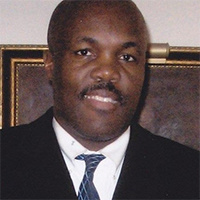 Hunt RICO Act Lawyers, New York
Hunt RICO Act Lawyers, New York
Sponsored Law Firm
-
 x
x

Click For More Info:
-
Cohen & Bernstein, L.L.C.
1360 Clifton Ave #309 Clifton, NJ 07012» view mapCriminal Defense We’re In this Together!
We work hand in hand with our clients to ensure all of your questions are answered and progress through your legal issue is seamless.
800-978-7341
Not enough matches for Hunt RICO Act lawyer.
Below are all Hunt Criminal lawyers.
Sponsored Lawyers
1-10 of 14 matches
Accident & Injury, Criminal, Divorce & Family Law, Estate, Bankruptcy & Debt
Derek Akiwumi, representing clients throughout WNY, has a proven reputation for getting the results you need. From criminal defense, appeals, and personal injury, Derek Akiwumi can help.
(more)


 Lindsay Bernstein Clifton, NJ
Lindsay Bernstein Clifton, NJ Practice AreasExpertise
Practice AreasExpertise

